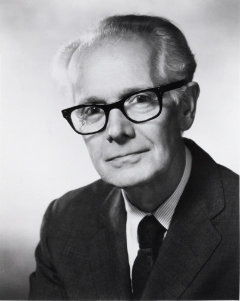Self Psychology Origins
Heinz Kohut: Founder of Self Psychology
"If there is one lesson that I have learned during my life as an analyst, it is the lesson that what my patients tell me is likely to be true - that many times when I believed I was right and my patients were wrong, it turned out, though often only after a prolonged search, that my rightness was superficial whereas their rightness was profound." (Kohut, 1971)
Heinz Kohut was the Vienna born, Chicago transplanted psychoanalyst who first conceptualized a psychology of the self.
During the late 60s and early 70s, when Kohut produced his seminal work, psychoanalysis had become stalled in the development of its theories. This inertia was largely due to a worshipful attitude toward Sigmund Freud and the stifling blind adherence to his ideas that was prevalent in much of psychoanalysis. At that time, every new psychoanalytic idea, or extension of a previous idea, was held to the litmus test of whether it fit properly with Freud’s thinking. The analyst who submitted a truly new psychoanalytic idea, an idea that went beyond Freud’s conceptualizations, required enormous bravery and conviction since the price of such “hubris” usually was an informal extrusion from the psychoanalytic establishment.
Kohut gave us his valuable new ideas but, in addition, he also modeled a brave commitment to science through his ability to veer away from psychoanalytic dogma and take a fresh look at the phenomena that confronted him daily in his practice of psychoanalysis. Sadly, the price of his efforts was ostracization by the psychoanalytic establishment.
In spite of this, Kohut, with the essential support of a small group of colleagues, continued his explorations until his untimely death in 1981 at the age of 67.
